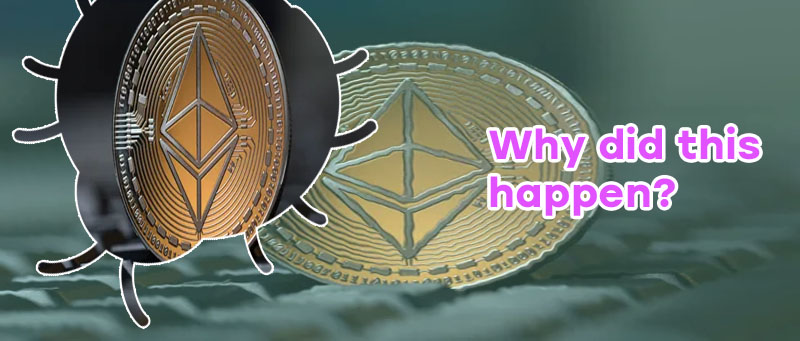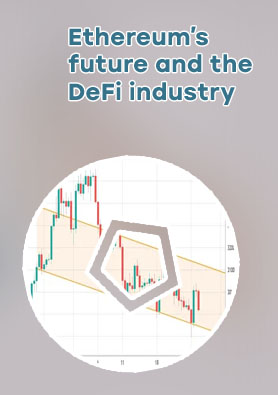Current ether price

Ethereum News
The ultra-volatile nature of the Ether/USD pairing makes it one of the most popular crypto-to-fiat currency pairs in the market. As the volume of Ethereum to USD transactions is steadily growing, the pair has become a strong alternative to traditional forex markets, offering substantial opportunities to traders. What is the price of ethereum Market dominance of 11 cryptocurrencies on January 29, 2024Current price of ether
There is also the matter of non-fungible tokens (NFTs). Since most, if not all, NFTs are based on Ethereum, the potential for a variety of forks could make it confusing for some NFT holders to know exactly what they own and where exactly that is. That could, in turn, lead to a growth of NFT scams, with items listed for sale which are not, in fact, for sale. Falsely declared airdrops and support scams could also rob people of their money. History of Ethereum (ETH) Transactions on the Ethereum network involve the transfer of value or data between two Ethereum accounts, either by sending Ether or executing smart contracts. To perform these transactions, users must pay a fee called “gas,” which is paid in Ether to cover the costs of processing and validating the transaction. Gas fees ensure that the Ethereum network operates smoothly and efficiently, compensating miners and validators for their efforts.
Ethereum token standards
Ethereum is also used as a platform for launching different cryptocurrencies. The ERC20 token is defined as a standard by the Ethereum Foundation. Developers of other currencies are able to use the token as a template to earn money with an ICO. How Does Ethereum Work? Ether is the currency unit of the Ethereum network.What is the price of ethereum
Ethereum is also used as a platform for launching different cryptocurrencies. The ERC20 token is defined as a standard by the Ethereum Foundation. Developers of other currencies are able to use the token as a template to earn money with an ICO. Economic Calendar Events Even after all of the progress, Ethereum is in the early stages of its deployment. If you believe in the future of Ethereum, it’s always a good time to buy. But it’s usually wiser to dollar-cost average or ease into your position. All cryptocurrencies are very volatile, but by buying a little bit at timed intervals, you can smooth out the highs and lows.
- Ethereum gas fees tracker
- Etherium live price
- Cryptocurrency bitcoin price
- Cryptocom taxes
- Btc value usd
- Buy bitcoin online
- Shiba inu coin cryptocurrency
- Who has the most btc
- Bitcoin investment
- Buy telcoin crypto
- Bitcoin converter
- Gaming crypto
- Google bitcoin
- Cryptocom card
- Cryptocom trading fees
- Cheapest bitcoin price
- Is bitcoin a good buy
- What the hell is bitcoin
- Wallet for crypto
- How to buy dogecoin stock on coinbase
- Ether 1 crypto
- How to buy safemoon on cryptocom app
- Best crypto to buy
- Crypto interest
- Cryptocom unsupported currency
- Eth gas tracker
- Buy bonfire crypto
- How much is 1eth
- Bit coin diamond
- Trending crypto
- Should i buy bitcoin or ethereum
- Will dogecoin be on coinbase
- Crypto credit
- Where to buy crypto
- Buy cryptocurrency
- Crypto market live
- Cryptocurrency app
- Defi ethereum wall
- Cryptocom app
- How much is bitcoin today
- Crypto com nft
- Launches crypto world check section blog
- Crypto pc
- Binance bitcoin
- Crypto earn
- How does btc mining work
- Bitcoin starting price
- Dogecoin 20 where to buy
- Bitcoin's value today
- Coinbase cryptocurrency prices
- Free ethereum
- When did btc come out
- Ergo crypto
- Send bitcoin
- Crypto com not letting me buy
- Cryptocom verification process
- How to withdraw money from cryptocom
- How does cryptocurrency gain value
- Btc funds
- Santa coin cryptoDecentralization illusion central urges regulation cryptoWhy dogecoin going downCrypto com coins availableDogecoin to usdCryptocom 2 factor authenticationWgmi meaning cryptoBaby bitcoin priceCrypto com adBuys another now owns bitcoinsBitcoin tradingCryptocom defi walletBtc funding rates
